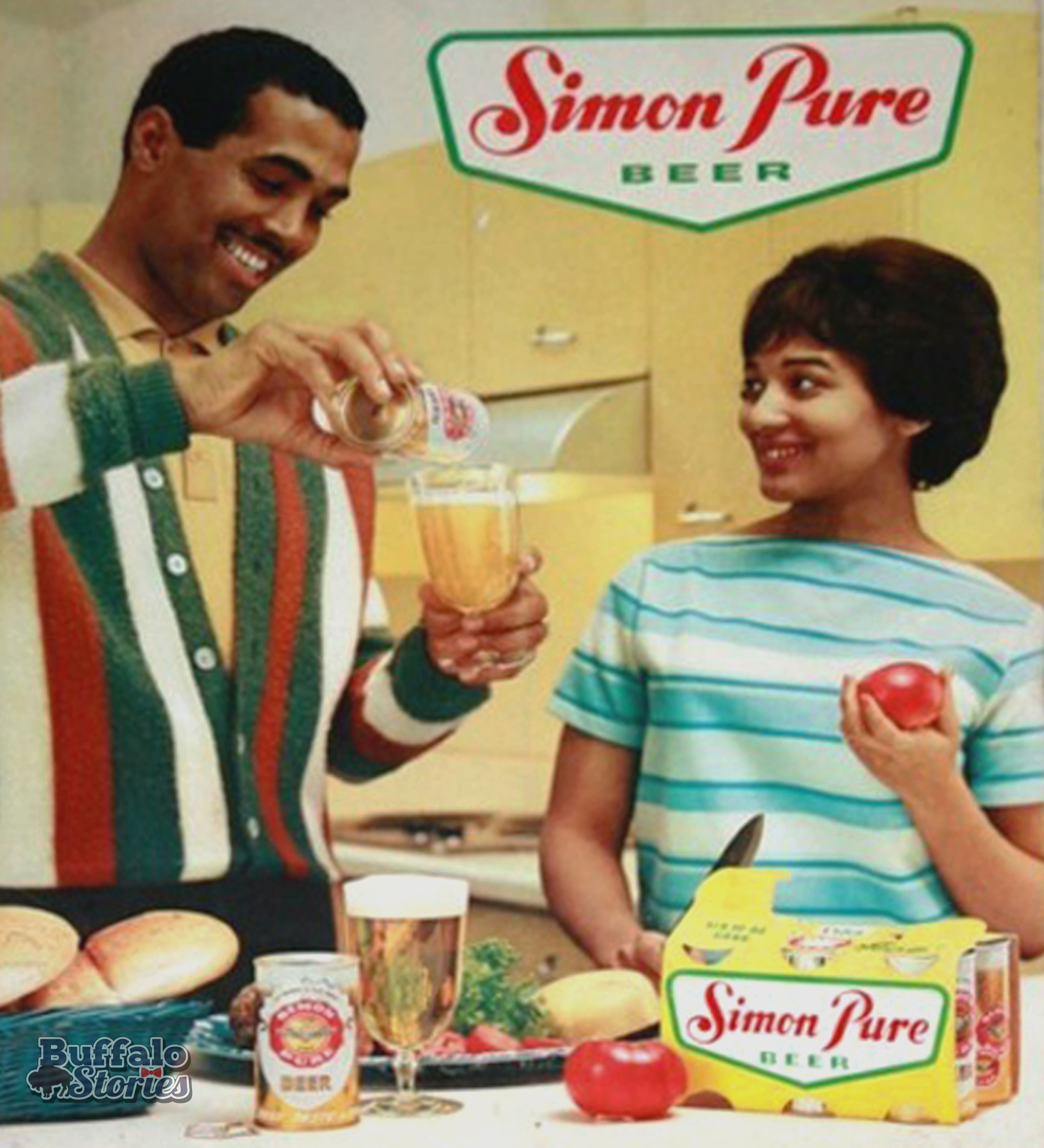 By Steve Cichon
By Steve Cichon
steve@buffalostories.com
@stevebuffalo
We’re looking back at the beers your dad drank today.
 The 1950s started with five local breweries in Buffalo, but by the time the decade ended, three of them–Buffalo’s Manru, Phoenix, and Beck breweries– had all closed.
The 1950s started with five local breweries in Buffalo, but by the time the decade ended, three of them–Buffalo’s Manru, Phoenix, and Beck breweries– had all closed.
Through the 50s, Carling’s Red Cap, Black Label, and Old Vienna beers from Canada were popular, and Goebel and Ballantine were two out-of-town cheap beers that sold well in WNY.
MORE: Buffalo in the 50s: The cheap beers Buffalo dads were drinking 65 years ago this week
In the 1960s, Iroquois and Simon Pure were still being made in Buffalo, and Rochester’s Genesee and Dunkirk’s Koch’s were other popular semi-local choices. Schmidt’s of Philadelphia was popular el-cheapo beer.
MORE: Buffalo in the 60s: Which beers were Buffalonians drinking 50 years ago?
 As the 1970s rolled around, more Canadian beer prices came closer in line with US prices, and Labatt Blue beer and Labatt 50 Ale became more readily available and selling better, especially with the closure of Buffalo’s last two breweries.
As the 1970s rolled around, more Canadian beer prices came closer in line with US prices, and Labatt Blue beer and Labatt 50 Ale became more readily available and selling better, especially with the closure of Buffalo’s last two breweries.
MORE: Buffalo in the 70s: Labatt starts move as Buffalo’s most popular beer
 Simon Pure closed in 1971 and Iroquois closed in 1972, but through the 70s,Dunkirk’s Fred Koch Brewery continued making those beers, along with their own popular Golden Anniversary Beer.
Simon Pure closed in 1971 and Iroquois closed in 1972, but through the 70s,Dunkirk’s Fred Koch Brewery continued making those beers, along with their own popular Golden Anniversary Beer.

By the end of the 70s, Genesee was Buffalo’s best selling beer, served in just about every shot and beer corner gin mill in the city.
By the 1990s, and ever since, Labatt Blue has been Buffalo’s best selling beer.




















